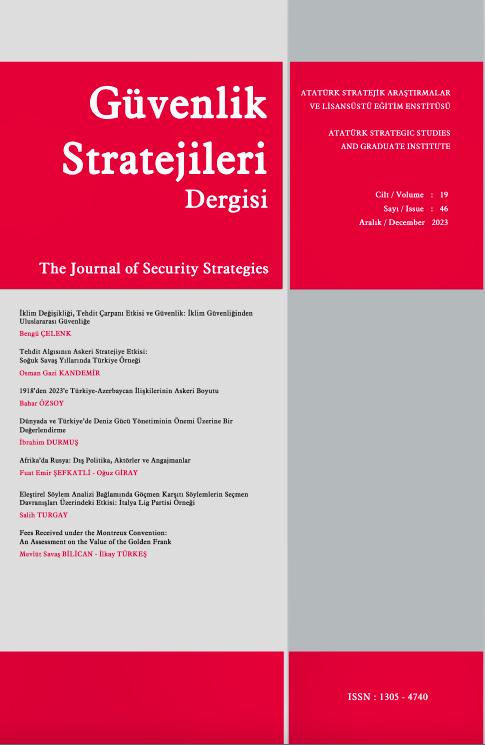Tehdit Algısının Askeri Stratejiye Etkisi: Soğuk Savaş Yıllarında Türkiye Örneği
The Impact of Threat Perception on Military Strategy: The Case of Türkiye during the Cold War Era
Author(s): Osman Gazi KandemirSubject(s): Politics / Political Sciences, Military policy
Published by: Atatürk Stratejik Araştırmalar Enstitüsü
Keywords: Military Strategy; Threat Perception; Türkiye-US Military Relations; Transformation of Armies; Cold War;
Summary/Abstract: Military Strategy is the process of matching the resources provided to military power according to the threat. Threat is about the future rather than the present and involves an assessment based on the predictions. In a sense, it is perception. When perception is far from reality, it leads to unnecessary waste of resources or, conversely, to increased risks for countries. This study aims to explain the impact of threat perception on military strategy during the Cold War period through the case of Türkiye. The findings obtained through document analysis are supported by interviews with retired military officers specialized in military strategy. According to the main argument of the article, Türkiye’s threat perception during the Cold War was determined by the United States (US) and Türkiye’s defence design was based on this threat created by the US. Questioning the dimensions and accuracy of the threat revealed that the threat was overestimated. One of the reasons why the US overestimated the Soviet threat was its need to appropriate its resources by distributing the need for conventional power among its allies, and another reason was its desire to keep the Alliance under control. However, countries like Türkiye had to spend more strategic resources on military power than necessary.
Journal: Güvenlik Stratejileri Dergisi
- Issue Year: 19/2023
- Issue No: 46
- Page Range: 561-583
- Page Count: 23
- Language: Turkish

